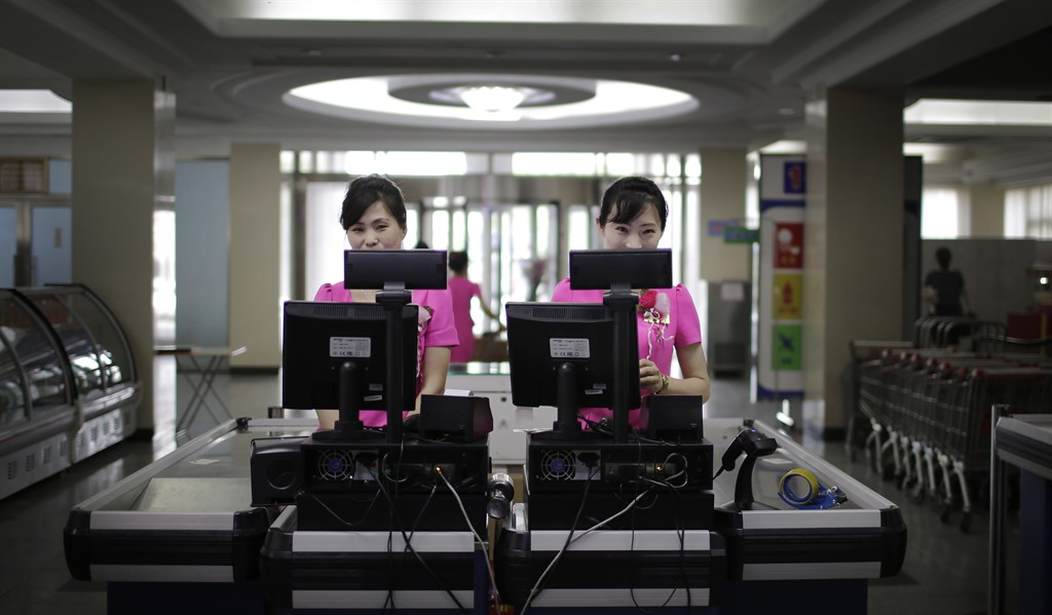The tradition of tipping the servers at upscale restaurants goes back a long way and has generally been seen as a fixture of polite society. (Raise your hands if you’re old enough to remember what “polite society” looked like.) There were always good reasons for it, particularly since most states still allow eateries to pay the wait staff well below minimum wage. Also, the prospect of getting a good tip tends to lead to better quality service. But as our colleague Gwendolyn Sims reports at PJ Media this week, there are changes taking place in the practice of tipping and you may not be a fan of them. Some eateries and even big box stores have been moving to self-service checkout systems. And recently, those systems have begun asking customers if they would like to include a gratuity for the staff.
First, big box stores like Wal-Mart introduced self-service checkout stands. You know — the ones where we shoppers begrudgingly do the jobs of the stores for free while under intense electronic and in-person surveillance and all without so much as a discount or meaningful human interaction? Well, now — thanks to the Biden economy — the newest trend at restaurants and stores with self-service checkouts is to coerce and guilt consumers into adding unearned tips to their total.
I don’t know about you, Dear Reader, but I grew up in an era when tipping was in direct proportion to the quality of a service rendered. Better service was rewarded with a better tip, but the service component had to be there.
Let’s break this down into the two categories of businesses being discussed. First, there is the food and beverage industry. I don’t tend to tip at fast food joints, particularly since we mostly use them for takeout at the drive-through. There really isn’t a lot of “service” involved there. And now, an increasing number of these outfits (including Mcdonald’s) are using kiosks instead of human cashiers. I’m certainly not going to be tipping anyone when I have to do the work of placing my order and paying for it myself.
In sit-down restaurants, I’ve always tried to be supportive of the wait staff and be a good tipper. (My wife will occasionally cluck her tongue and suggest I could tone down the generosity a bit.) But even if a waiter or waitress manages little more than getting our order correct and keeping the water glasses filled, they can generally count on at least an extra 10% from me. But even some of these higher-end restaurants, including some in my area, have taken to employing robot servers that take your order and deliver your food. That seems so impersonal that it’s almost insulting and I will not be leaving a gratuity for a robot, no matter how “adorable” they make some of them. I doubt I’ll ever eat at such a place if it can be avoided.
Then there’s the issue with the big box stores like Home Depot where they have added self-service checkout stands. I’m generally not opposed to that if the system is efficient. We’ve actually used them on occasion. But since when did people start tipping checkout clerks? Is that even a thing? (If so, I may have a lot of clerks I need to apologize to.) But if the robotic self-service checkout computer begins asking me if I’d like to include a tip, I’ll be looking for the “hell no” button. You’re not providing me with any service.
As Ms. Sims points out, these companies insist that the tipping function remains entirely optional and they claim that any tips received will be “split between all employees.” But as she further notes, that might not even happen in all cases. The Fair Labor Standards Act only applies to human beings, not machines. At least in some cases, this may simply be a way for the business to further drive up revenues when everything is already too expensive under this administration’s economy. No thanks, but I think I’ll be taking a pass on tipping a kiosk.








Join the conversation as a VIP Member